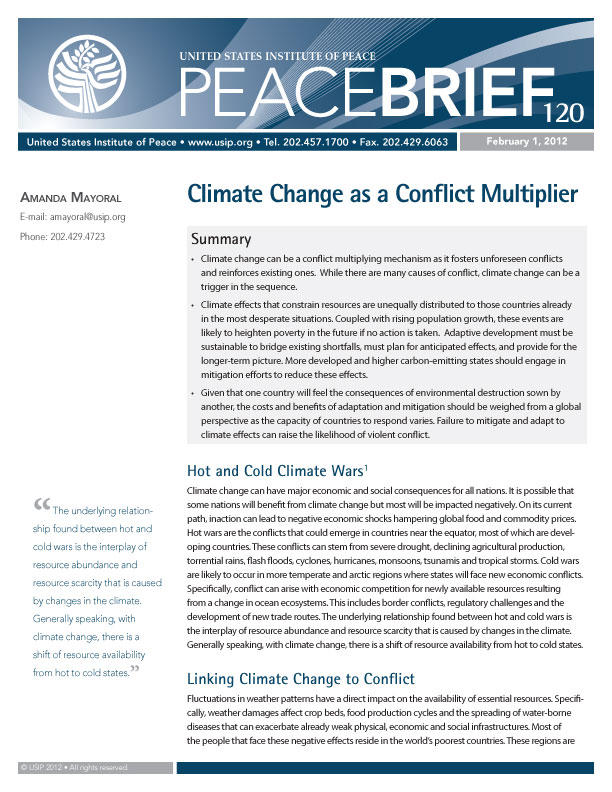Climate change can have major economic and social consequences for all nations. It is possible that some nations will bene fit from climate change but most will be impacted negatively. Failure to mitigate and adapt to climate e ffects can raise the likelihood of violent con flict.

Summary
- Climate change can be a conflict multiplying mechanism as it fosters unforeseen conflicts and reinforces existing ones. While there are many causes of conflict, climate change can be a trigger in the sequence.
- Climate effects that constrain resources are unequally distributed to those countries already in the most desperate situations. Coupled with rising population growth, these events are likely to heighten poverty in the future if no action is taken. Adaptive development must be sustainable to bridge existing shortfalls, must plan for anticipated effects, and provide for the longer-term picture. More developed and higher carbon-emitting states should engage in mitigation efforts to reduce these effects.
- Given that one country will feel the consequences of environmental destruction sown by another, the costs and bene fits of adaptation and mitigation should be weighed from a global perspective as the capacity of countries to respond varies. Failure to mitigate and adapt to climate effects can raise the likelihood of violent conflict.
About this Brief
In the fall of 2010, USIP hosted the event Environmental Sustainability and Peace in a Changing World. This Peace Brief incorporates the key points made by discussing the linkages between climate change and conflict and outlines opportunities for both mitigation and adaptation for all stakeholders.
About the Author
Amanda Mayoral is the special assistant to the chief of staff at USIP. She has studied economics as a graduate student at the American University in Washington, D.C.